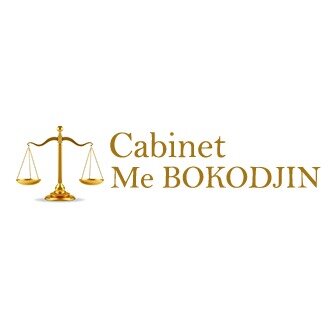Best Nursing Home Abuse Lawyers in Lomé
Share your needs with us, get contacted by law firms.
Free. Takes 2 min.
List of the best lawyers in Lomé, Togo
About Nursing Home Abuse Law in Lomé, Togo
Nursing home abuse in Lomé, Togo, addresses the mistreatment or neglect of elderly individuals residing in nursing homes. As the nation's capital and a hub for healthcare services, Lomé has witnessed an increasing awareness and need for stringent laws to protect its elderly population. Nursing home abuse can take several forms, including physical, emotional, sexual, and financial abuse, as well as neglect. Awareness and documentation are critical for ensuring that these vulnerable individuals receive the care and respect they deserve.
Why You May Need a Lawyer
If you suspect or have evidence of nursing home abuse affecting a loved one, consulting a lawyer could provide you with necessary action steps and legal remedies. Common situations where legal assistance might be necessary include:
- Identifying signs of physical, emotional, or other forms of abuse.
- Encountering difficulties in accessing medical or personal care records.
- When the nursing home management is uncooperative or dismissive about any reported issues.
- Needing to navigate the complexities of the local legal system and related formalities.
- Pursuing compensation for damages or injustice suffered by the resident or their family.
Local Laws Overview
The legal framework in Togo, including Lomé, comprises several laws that safeguard the rights of the elderly and vulnerable populations, complemented by initiatives to enhance overall care standards in nursing homes. Key aspects include:
- Regulations requiring nursing homes to uphold specific standards of care and hygiene.
- Legal provisions that criminalize abuse, neglect, and exploitation of elderly residents.
- Protections that ensure reporting mechanisms are in place for abuse cases.
- Rights for elderly individuals or their families to take legal action against nursing homes for any breaches of care standards.
Frequently Asked Questions
What signs should I look for to identify nursing home abuse?
Indicators of abuse include unexplained injuries, signs of neglect like poor hygiene, sudden emotional withdrawal, and missing personal funds or belongings.
Is it mandatory to report suspected abuse?
Yes, reporting suspected abuse is crucial and often required by law. It can lead to prompt investigations and potential legal actions.
Who can be held responsible for nursing home abuse?
Potential parties include nursing home staff, management, or even other residents if their actions contribute to the abuse.
Can I file a legal complaint on behalf of a nursing home resident?
Yes, if you are a legal representative or have clear interest, such as being a close family member, you can file a complaint on behalf of the resident.
What compensation might be available in nursing home abuse cases?
Compensation may cover medical expenses, pain and suffering, loss of income, or other related damages.
How long do I have to file a lawsuit after discovering abuse?
There is typically a statute of limitations; it is advisable to act as swiftly as possible to ensure you remain within legal time frames.
What evidence is needed for a nursing home abuse case?
Documentation such as medical reports, witness statements, photographs, and financial records can be crucial evidence.
Are there specific laws for emotional or psychological abuse?
Yes, emotional abuse falls under broader abuse categories, with specific provisions applicable depending on the context and severity.
How do investigations typically proceed in these cases?
Investigations might involve law enforcement, social services, and healthcare professionals working together to assess the situation.
Can nursing homes retaliate if I report abuse?
Retaliation is illegal and could lead to further legal consequences for the nursing home. There are protections in place for whistleblowers.
Additional Resources
Several organizations and government bodies can assist individuals in Lomé dealing with nursing home abuse:
- Ministry of Health and Social Welfare: Oversee care standards and handle abuse complaints.
- Local law enforcement agencies: Conduct initial intake and investigations of reported abuse.
- Legal aid organizations: May provide guidance or representation for low-income families facing nursing home abuse issues.
Next Steps
If you suspect nursing home abuse, prioritize the safety and well-being of the individual involved. Start by collecting any evidence and report your concerns to relevant authorities. Consider contacting a legal professional specializing in elder law or personal injury to understand your rights and options. Reach out promptly to ensure you meet any legal deadlines and address the abuse effectively.
Lawzana helps you find the best lawyers and law firms in Lomé through a curated and pre-screened list of qualified legal professionals. Our platform offers rankings and detailed profiles of attorneys and law firms, allowing you to compare based on practice areas, including Nursing Home Abuse, experience, and client feedback.
Each profile includes a description of the firm's areas of practice, client reviews, team members and partners, year of establishment, spoken languages, office locations, contact information, social media presence, and any published articles or resources. Most firms on our platform speak English and are experienced in both local and international legal matters.
Get a quote from top-rated law firms in Lomé, Togo — quickly, securely, and without unnecessary hassle.
Disclaimer:
The information provided on this page is for general informational purposes only and does not constitute legal advice. While we strive to ensure the accuracy and relevance of the content, legal information may change over time, and interpretations of the law can vary. You should always consult with a qualified legal professional for advice specific to your situation.
We disclaim all liability for actions taken or not taken based on the content of this page. If you believe any information is incorrect or outdated, please contact us, and we will review and update it where appropriate.









